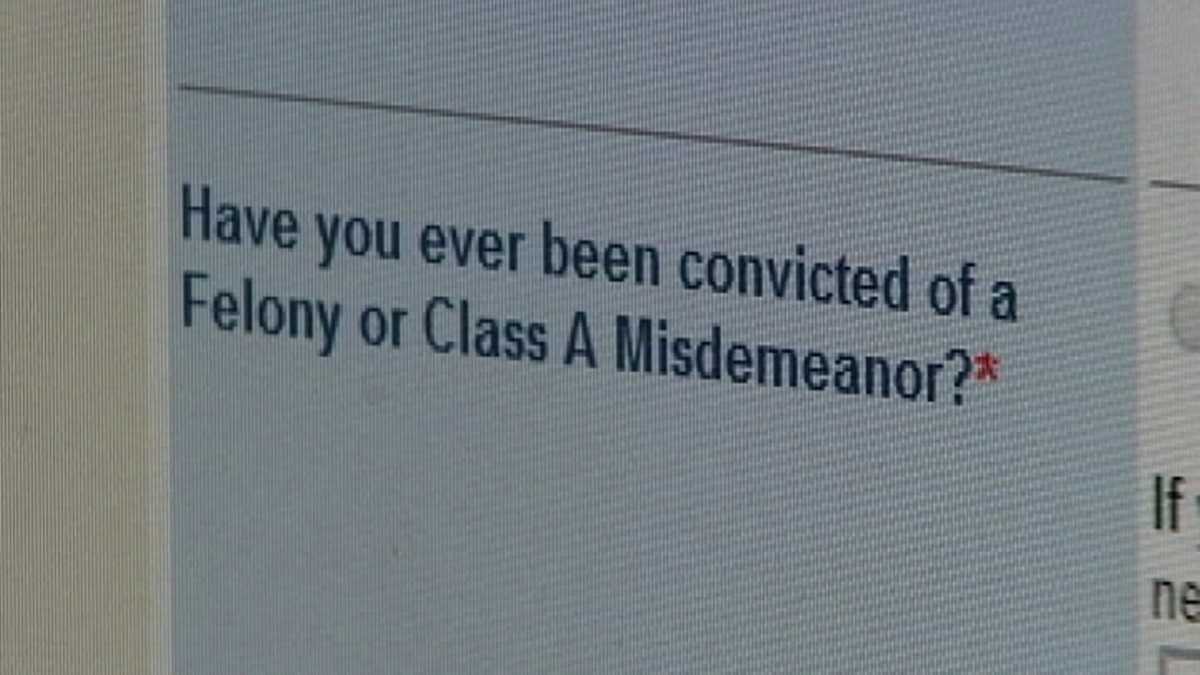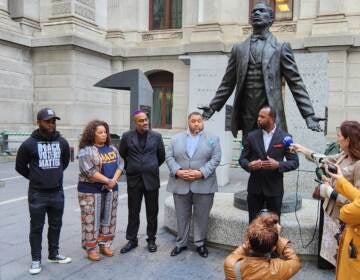‘Ban-the-box’ bill would nix criminal record question from Pa. college applications
If passed, state and state-related colleges and universities in Pennsylvania would no longer be able to ask prospective students about their criminal records.

(WHYY file photo)
A new bipartisan bill in Harrisburg would prohibit nearly two dozen universities in Pennsylvania from asking applicants about their criminal records.
The Common Application, the most widely used college application in the country, stopped asking prospective students that question last year. But schools that want to continue using the application can still ask about a person’s juvenile and adult criminal records using their own supplemental forms. If the bill passes, that will no longer be an option.
Speaking at a virtual news conference on Wednesday, state Rep. Morgan Cephas (D-Phila.) said her “ban-the-box” legislation is needed now more than ever.
“When we are looking at crawling our way out of COVID-19, ensuring that our economy rebounds, that residents are truly able to take care of themselves and achieve economic prosperity, we really have to ensure that we are creating protections and policies to really address the barriers this population experiences,” she said.
An estimated 1 in 3 Pennsylvanians has a criminal record. A disproportionate number of them are Black and Hispanic, according to the Public Interest Law Center.
The bill comes more than three years after Philadelphia-based Community Legal Services launched a public campaign calling on Pennsylvania colleges and universities to “ban the box” on their admissions applications.
If passed, it would apply to universities part of Pennsylvania’s State System of Higher Education (PASSHE), including Cheyney, West Chester and Kutztown.
State-related schools, such as Penn State, Temple and the University of Pittsburgh, would also have to stop asking students about their records, which advocates say discourages some people from even applying to schools in the first place out of fear that their pasts will get them rejected.
“There is so much potential behind these walls and we are literally missing out on talent,” said Stanley Andrisse, executive director of the Washington, D.C.-based Prisons-to-Professionals Program.
Mary Enoch Elizabeth Baxter, a Black artist and activist from Philadelphia, still remembers how nervous she felt sitting in front of a computer screen loaded with the Common Application. She had felony convictions for drug dealing and conspiracy to commit burglary on her record, and worried that would ruin her chances of attending a four-year university.
The thought of omitting her criminal record crossed her mind.
“I remember several times logging back out and just having this fear and overwhelming anxiety in retraumatization of my experience while incarcerated,” she said.
Ultimately, Baxter, 38, decided to disclose the information and hope for the best. She was accepted to every art school she applied to, including Moore College of Art and Design, the Art Institute of Chicago and New York University, but never got the chance to attend any of them, in large part because she couldn’t afford them and couldn’t get a cosigner to take out student loans.
She still credits higher education with helping her get where she is now — an artist now part of an exhibition at the Museum of Modern Art in New York. She has two associate’s degrees.
“Access to higher education gave me the networks, information and education necessary for me to take the next step,” said Baxter, also known by her hip-hop name Isis Tha Saviour.
Dave Pidgeon, a spokesperson for PASSHE, whose members educate more than 93,000 students a year, said the organization is in talks with Cephas about the bill.
“We’re continuing to review it,” Pidgeon said.
Cephas and co-sponsor state Rep. Jason Ortitay (R-Allegheny) hope to get the bill passed before the current legislative session ends in December. If not, they plan to reintroduce it at the start of the next session.
Five other states — Maryland, Louisiana, Washington, Colorado and California — have passed similar measures. A handful of others have introduced similar legislation.
“The bill we are introducing today builds on our efforts to give people a second chance to build a better life,” Ortitay said.

Get daily updates from WHYY News!
WHYY is your source for fact-based, in-depth journalism and information. As a nonprofit organization, we rely on financial support from readers like you. Please give today.






